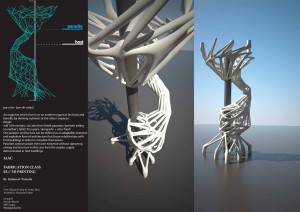par·a·site [par-uh-sahyt]
An organism which lives in or on another organism (its host) and bene ts by deriving nutrients at the other’s expense.
Origin: mid 16th century: via Latin from Greek parasitos ‘(person) eating
at another’s table’, from para- ‘alongside’ + sitos ‘food’.
Our parasitic architecture can be de ned as an adaptable, transient
and exploitive form of architecture that forces relationships with
host buildings in order to complete themselves.
Parasites cannot sustain their own existence without siphoning
energy and structure in this case from the surplus supply
demonstrated in host buildings.

